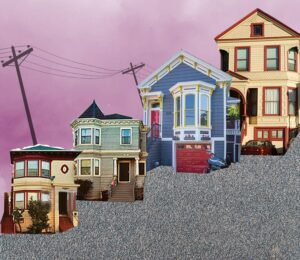Feminism in this day and age has been debated on, from its need in society to the divisions between women based on race, sexual orientation — the list can go on and on.
As a queer Black woman, I’ve realized that my experiences with feminism have been shaky. Maybe they always have been like this, I don’t know.
At least I know one thing: I cannot agree and co-sign some ideas, such as “collective” reconstruction of a woman’s social experience for feminism, just yet. For me, feminism and its movement has been a privileged action because of my personal experiences and identity. In fact, I do not call myself just a “feminist” anymore. Instead, I always tell my friends and family that I am a queer Black feminist and womanist. In order for me to truly ally myself with other feminists, I feel that we have to acknowledge the racism that occurs in feminism and in society. Overall, I feel that I have a larger fight because of my race, gender and sexuality.
Still, I’ve always wanted to explore feminism and its dimensions through experiences and identity and see how they would shape different perspectives on current issues, such as intersectionality, education, sexuality and even with fashion.
Hence, the birth of this column, “In Search of Feminism.”
At least I’m not alone in this mini-exploration. With this column, I intend on exploring this subject with five contributing writers along the way: Mills First year Elisabeth Sunseri, Sophomore Greta Ruttenberg, Seniors Megan Rue and Sonja Lund, and Graduate student Sam Dylan Finch.
Each of us intend to express our thoughts about feminism, delving into subjects that interest us and will hopefully intrigue and interest readers. These writers hold an excitement and passion for their ideas that can be seen through their words, all trying to find or explain their perspectives on this “f” word.
Some of us feel excluded and alienated within this sphere, trying to find our place. Some have simply left it and made their own identities. Some of us are left with questions about the movement. It does not mean that we do not have our opinions about feminism and its issues. Let us take you through these views and ideas with this column.


